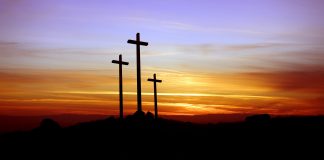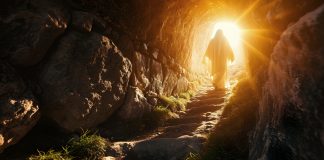Florin Lăiu
Mary’s journey: from inner turmoil to unshakeable trust
Mary was an ordinary person, just like us. The Gospel does not suggest that she had any particular merit, yet her obedience played a pivotal role in a story that would change the world.
Criticism of Daniel: Arguments of destructive criticism and their counterarguments
The biblical prophet Daniel was treated with hostility during his lifetime and has been attacked throughout history by sceptical or apostate Jews and Christians. At the same time, he has been cherished and defended by people of all generations, including faithful Jews, Jesus Christ, and modern researchers, who have systematically responded to criticisms and objections raised against his book and prophecies.
Daniel: on the pedestal of history
On the pedestal of history, holding the flame of freedom—that's how the Book of Daniel has stood since it first appeared, more than 2500 years ago, and how it continues to stand today. It is a divinely inspired introduction to the book of Revelation, and together they represent the extension of the gospel beyond the apostolic generation up until the return of Christ,...
Religion is what’s in my heart: true or false?
"Religion is what is in my soul. No one can take away what is there. But in public we have to comply..."
A parallel world
It is interesting to see Louis Baragona's portrait of a modern witch. Although he was sceptical at first, Louis tells how Emily Grote, an elegant "psychic" from Brooklyn, New York, changed his life.
How would God want a person to live on any given day?
Living one day according to God's plan is a good idea to start with. But learning to live in such a way every day is something else.
A lesson in natural sciences
The red horizons are shattered. But much more subtle dangers loom for the present and the future. In most Christian countries, theology has declared a truce with evolutionary atheology and has devised a foolish and deadly compromise that is neither atheism nor true Christianity.
The story of blessed Ayyub
During the time when the people of Israel were enslaved in Ta Kemet (the Black Land), and Prince Moses, the great scribe, had taken refuge among the northern Arabian tribe of Midian, a captivating story shared by the campfire caught his attention. It was the tale of another prince who, like him, had suddenly lost everything.
The myth of myths | Is religion just a collection of myths?
The diversity and divergence of religious beliefs clearly indicate that not all religious doctrines and perspectives can be true. Throughout history, there have been vastly different universal religions, each with multiple interpretations and denominations. We have religions, not just “religion.” However, if there is one true religion that respects truth, freedom, and intelligence, the myth of myths collapses.
Christ has ascended!
On the evening of His passion, Jesus promised His disciples, ""Do not let your hearts be troubled. You believe in God; believe also in me. My Father’s house has many rooms; if that were not so, would I have told you that I am going there to prepare a place for you? And if I go and prepare a place for you, I...
We are the writers of our own future | An overview of biblical prophecy
As a prophetic book par excellence, the Bible is often misinterpreted, its prophecies taking on fatalistic overtones or frightening attributes. Properly understood, the prophecies of the Bible do more than predict the future. They can also give the reader a clearer perspective on the present.
The future and prophecy
Much of the Bible was written by prophets, so it is full of prophetic revelation. Most of these revelations are about mysteries of the past and present that we would not otherwise have access to.
Jesus, the commandments, and legalism
Over the centuries, strong but artificial tensions have been created between the Gospel of Paul (proclaimed especially by Augustine and many Protestants) and the "legalism" of the biblical writers James, Peter, Jude, and so on, which Catholic and Orthodox theologians have usually defended. What is at stake in these tensions is the authority of God's commandments and thus the duty or obligation to...
The mystery of the seventh day (III)—Was Jesus a legalist?
In the first two articles of this series, we examined the biblical theology of the Sabbath in relation to the divine act of creation, the history and theology of the people of Israel and early Christianity. This third and final article in the series will examine the Sabbath from the perspective of legalism, under which some commentators have placed seventh-day observance.
The mystery of the seventh day (II)—from Abraham to Paul
In this second article in a series of three, we continue our analysis of three major anti-Sabbatarian arguments. The series will conclude with an assessment of Jesus' practice and teaching on the Sabbath.


























